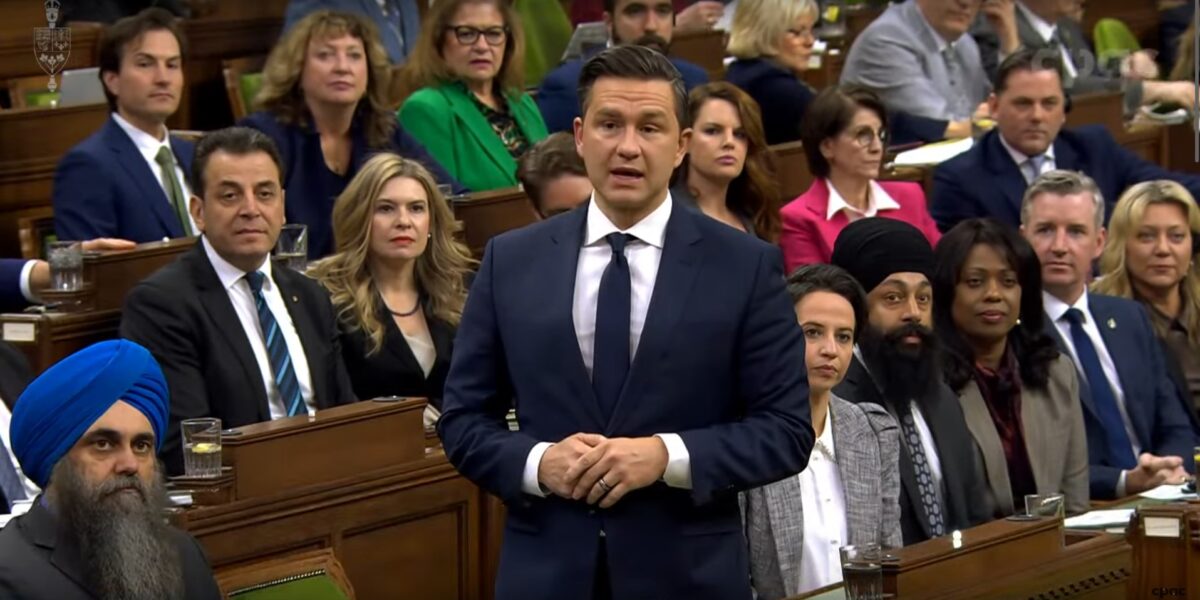There is no doubt that Pierre Poilievre caught the national mood of frustration over rising prices and economic uncertainty. His “Housing Hell” video is a skillfully crafted message, putting the blame for housing costs at the feet of Justin Trudeau and municipal “gatekeepers”. By the end of the pitch, viewers hear Pierre’s promise to get something done if he was in charge.
But here’s the thing. During the entire fifteen minutes, there is no mention of many of the actual culprits in skyrocketing costs. The words speculator, landlord or developer never appear. Nor do the words rent gouging or renoviction. Interest rates are mentioned, while all the other factors at play in the massive rise in the price of housing are left unspoken. Why is that?
Few of us realize the extent of profit involved in the rising prices, and that’s the last thing Poilievre wants to talk about. Economist Jim Stanford notes that the real estate sector took after-tax net profit of $55.8 billion in 2022 – up 65 per cent from 2019. It remains at a historically high $48.5 billion in 2023. On top of that, construction profits are almost 50 per cent higher than pre-pandemic levels, totalling $31.2 billion in 2023. The amounts are simply staggering.
Vancouver’s super-heated housing market was fuelled by offshore and domestic investors, and over half of all new condominium units built in the Greater Toronto Area in the last four years have been bought by speculators. Not by people who need a roof over their own head, but someone who is buying the property to rent out or to flip for higher prices as soon as possible. None of these units are covered by rent controls, so the investors simply charge what the market will bear. The shortage of affordable units was worsened by the lack of effective rent controls and the entry of short-term rental platforms. The federal government is subsidizing the spiralling rents of low-income families instead of building non-market affordable housing. Millions of dollars flow to the wealthiest property owners in the country—but somehow Poilievre neglects to mention that in his tirade against government spending.
Not a mention of renoviction. If an owner can legally get rid of tenants paying controlled rent, they can jack up the price substantially for new tenants. The most popular way for that to happen is to claim that the building needs to be renovated, and force people to move out. Few low-income tenants can pursue legal proceedings to protect their tenure.
The real estate industry wants to sweep away limits on building wherever money can be made. Suburban sprawl has eaten up farmland and now they want access to all public lands – but public land should only be used for permanently affordable housing, not speculation and profit. Ontario Premier Doug Ford has unilaterally ended municipal development charges that pay for the infrastructure needed to support new projects, changed the appeals process, and eroded the role of conservation authorities. Poilievre promises to go even further and withhold federal dollars from any city that doesn’t give the development industry free reign.
Some commentators point to the increased number of international students putting pressure on limited housing stock. Indeed, there was an explosion of private “career colleges”, primarily in Ontario, offering a route to residency for international students, and none of these private businesses provide accommodations for their students. But this is not what’s driving up house prices.
In the last decade, there has been an orgy of profit-taking in the housing market. At home and abroad, speculative capital has driven commodification of housing, while investment vehicles, such as Real Estate Investment Trusts, enjoy huge tax advantages. It’s the out-of-control market that is to blame for spiralling costs, not government spending.
You would never know that from watching Housing Hell. There is a good reason for that omission—the folks who are part of the root cause of this crisis are also huge donors to the Conservatives. The governing council of the federal Conservative Party is stacked with lobbyists for big oil and gas, finance or real estate. They are there to get results. And as the old saying goes, “he who pays the piper calls the tune”.
We need to start shining a light on the unspoken words at the root of the housing crisis, and call for solutions that will make affordability real instead of just a slogan.



